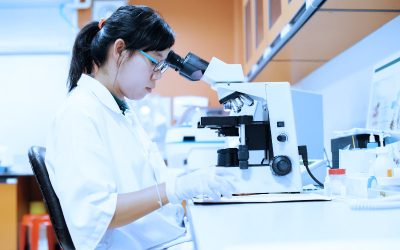In Israel’s dynamic agricultural landscape, managing bean cultivation is critical for increasing productivity and soil health. One of the most successful methods to accomplish this is by using bean inoculants, which improve nitrogen fixation, resulting in improved plant development and more sustainable farming practices. By adding good bacteria to the soil, these inoculants make crops more resistant to damage. This way, bean plants can get the nutrients they need without using as many chemical fertilizers.
Understanding Bean Inoculants and Their Function
Bean inoculant are natural soil additives that contain rhizobia bacteria, which live in symbiotic relationships with bean plants. This cooperation enables the plant to transform air nitrogen into a usable form, replenishing the soil with vital nutrients. The nitrogen-fixing process promotes stronger root development and healthier plant growth, resulting in higher agricultural output. In Israel, where farmers frequently encounter issues with soil fertility and water conservation, the use of bean inoculants offers a long-term solution that reduces reliance on synthetic fertilizers while boosting soil health.
The Advantages of Applying Bean Inoculants in Israeli Agriculture
Farmers in Israel get a lot out of using bean inoculants because these microbe-rich solutions directly lead to higher crop yields and better soil structure. Bean plants develop more aggressively with increased nitrogen fixation, producing bigger yields without depleting the soil’s natural resources. This leads to less dependency on artificial fertilizers, making agriculture more cost-effective and environmentally benign. Furthermore, employing bean inoculants helps to preserve soil biodiversity, which is critical for the long-term viability of farming systems. As agricultural practices in Israel evolve, the use of inoculants provides an effective and environmentally friendly way to increase legume production.
Effective Application for Maximum Impact
To get the greatest results, use bean inoculant correctly. Seed inoculation is a typical strategy in which seeds are coated with the inoculant before planting, ensuring that beneficial bacteria establish themselves immediately in the root zone. Another way is to apply the inoculant directly to the soil while planting, allowing it to integrate into the natural environment. Proper administration and storage of inoculants are critical for maximizing their effectiveness, as exposure to high temperatures or incorrect handling can limit bacterial viability. Farmers who adopt the appropriate method can experience considerable increases in crop performance and soil quality over time.
Strengthen Your Soil, Supercharge Your Harvests: The Power of DYNOMYCO
DYNOMYCO, founded in Israel, is a pioneering company specializing in high-quality mycorrhizal inoculants that improve plant nutrient uptake and resilience. With over 30 years of agricultural research at Israel’s famous Volcani Center, the company offers new microbial solutions for a variety of crops, including legumes. They promote favorable connections between plants and fungi, resulting in stronger root systems, better nutrient absorption, and higher yields. Farmers who want to maximize their bean production while encouraging sustainable agriculture can benefit from their sophisticated solutions, which are designed to boost plant performance while preserving soil health for future development.

